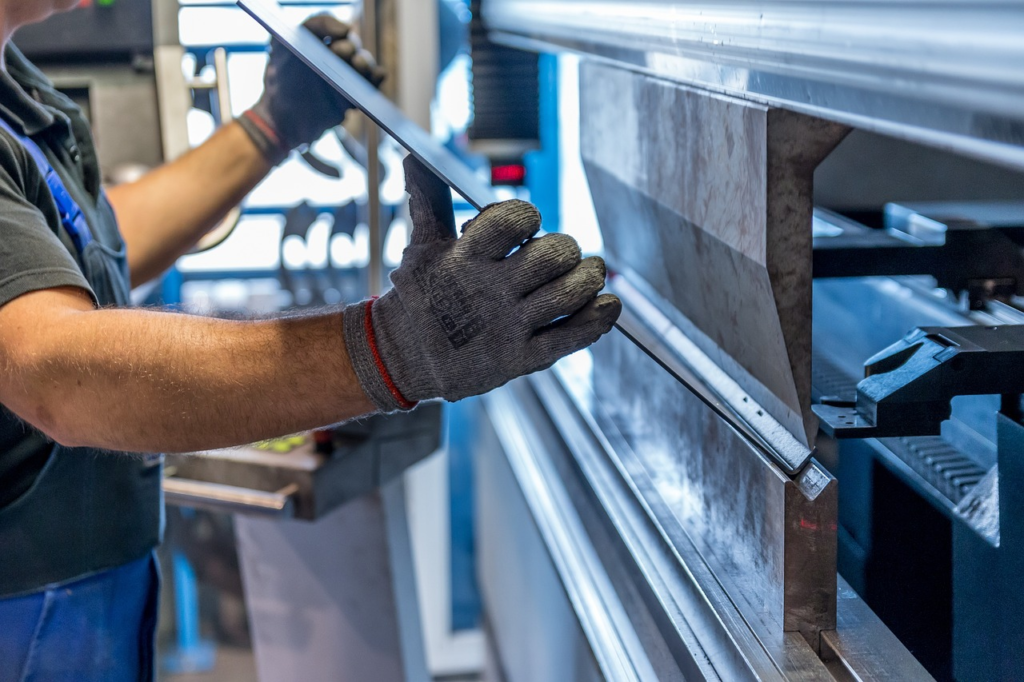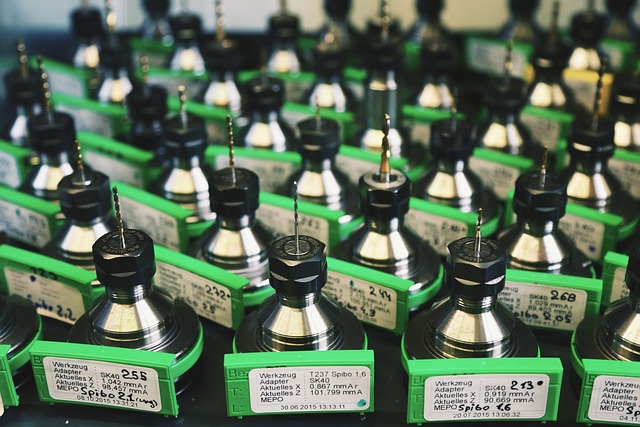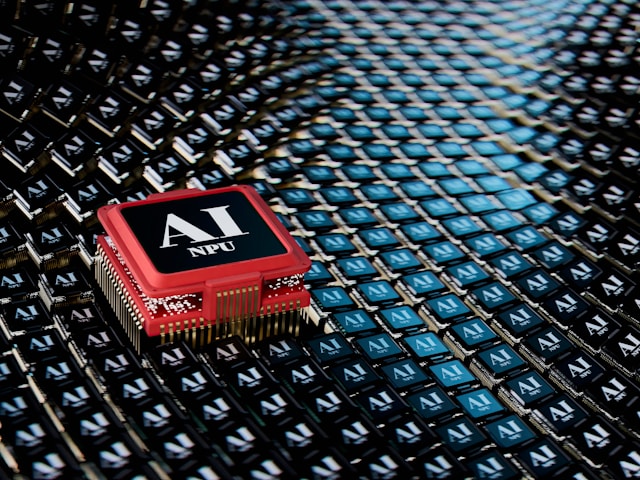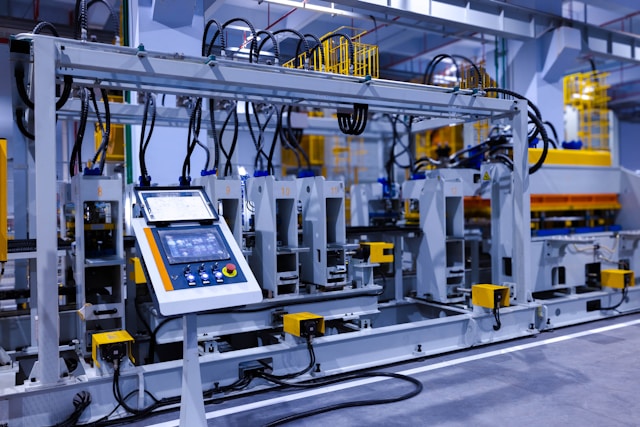More than ever, every industry sector is bearing witness to the trend of how specialization has been steadily taking priority over numerous baseline skills or competencies. Long gone are the days of seeking out a “jack of all trades.” Our growing and increasingly complex economy, including the sheer magnitude of choices, points to the demand for everyone’s elusive “master of one.” Just as this is true in human resources, it’s also a reality when it comes to manufacturing, engineering, and our expectations of how our technology can work better for this new reality.
Pun intended, to drill down on this manufacturing trend further, the rapid advancement of manufacturing via computer numerical control (CNC) has been one of the most prominent signals in this industry shift—heralding it as a flagbearer of Industry 4.0. Developments in computer technology, including tighter code that reduces error, more precise software programs for more efficient machine learning, and more overall AI integration, have manifested in new developments in the creation of a myriad of tangible products.
Steady investments in how CNC is created and implemented have led to even more widespread use; this means that with greater specialization of the tools that guide all physical components of industry, industry leaders from Fortune 500s to small-town warehouses are exploring how best to apply the Internet of Things from warehouses to construction sites to CNC machining—and when to consider other technologies.
Even though the opportunities these tools offer give the appearance of virtual limitlessness, there are multiple considerations before rushing to computer numerical control as an end-all, be-all of manufacturing solutions.

Consider the Job
While CNC is considered the engine of the modern manufacturing process, this doesn’t mean that all types of manufacturing jobs work best for manufacturing guided by agile CNC programs. For example, it is still fully reasonable that a business simply needs to scale up its manufacturing through an improved in-house design process, through a more efficient upgrade, or through more employee training, rather than (perhaps literally) re-inventing the wheel.
In other words, it’s important to weigh the benefits of any new CNC machining tool against the risks involved with human workers, including employee error due to new and more complex technology, and demands on more specialized skills that can thereby create more demand on wages and benefits, as well as on the workload of the employee themself. Being proactive about the relationship between demands on a company’s workforce and the positive outcomes of those demands can help one analyze whether a specialized CNC machine is in the best interests of overall company culture and more.
Is it cost-effective?
CNC machining could end up being cost-inhibitive for a business as specialized software programs, cutters, demand for specialized skills, and more may have negative impacts on a company’s bottom line.
Is it actually what you need?
There’s also a chance that a compromise approach could work well—especially if the CNC software already exists for the kinds of intended projects and that can be built to industrial scale. Relatedly, because not all manufacturing requires new CNC programming to mill, drill, or lathe a tried and true design, consider investing in upgrades to existing pieces, or focusing more on pre-existing computer-aided design and manufacturing (CAD/CAM). Consulting with firms that might already have the blueprints for what is desired is another cost-effective solution for a variety of industries, such as for everyday medical or dental devices like mouthguards and basic prosthetics that simply need to be custom-made at the lowest price point.
Is in-house always the best solution?
Depending on the scope of work, exploring avenues such as outsourcing certain manufacturing components can end up being more pragmatic than ordering custom-made manufacturing devices.
Consider the Tools

When it comes to CNC machining, it’s an understatement to say that it’s important to find the right tool for the right job.
There are many practical considerations, including:
- If a CNC machine is created for cutting, the type of cutter matters, such as if it is a laser cutter, a plasma cutter, a water jet, or any other type, and how this impacts safety as well as safe functionality in existing manufacturing sites
- The size of the CNC machine’s table and how it integrates into a manufacturing site’s existing workflow
- If the industry or business specializes in customized pieces and cutting, such as by using a CNC lathe. Planning the extent to which a business expects to swap out both types of cuts and scale of manufacturing will determine if a CNC machine is the most economical and future-forward solution to any form of assembly line
The biggest consideration worth its own highlight though, is the potentiometer. The potentiometer is the workhorse of the physical component of computer-driven machining, bringing the realm of abstract codes to the most integral components for the practical application of any given cutting, bending, printing, grinding, or anything else.
After all, industrial-grade potentiometers are the ultimate conduits between any software, including in-house CNC, and the rest of the design process. Depending on the type of machine and purpose, it is quite possible that rather than fully investing in new equipment, upgrading existing potentiometers can make all the difference in speed, precision, and efficiency.
Consider Your Bottom Line
One of the biggest challenges with CNC machining is that it can generate a substantial amount of waste as the mechanisms can frequently require additional materials for production. For example, if a company specializes in musical instruments for people with disabilities, there is a good chance that wood, certain strings, or any other components will be cut to a specific measurement and use, with the future of the leftovers uncertain due to the unpredictability of client requests.
In other words, using machining for highly customized products can be particularly challenging when it comes to any sort of business model that focuses on small batches and customization, as it means it is considerably more difficult to develop products on a larger—and thereby more efficient—scale.
More waste in generating any given product can be a huge impediment to smaller-scale businesses that generally have narrower profit margins and cannot afford to take more risks than necessary—including by risking precious resources, even when quality and quick turnaround are of the highest priority.
Additionally, because smaller operations mean a smaller workforce, there are likely fewer to delegate to more creative “salvaging” or problem-solving ideas for waste reduction. This is also why it’s important to work with experts in customizable CNC products to see if the business’s expectations align with realistic expectations for success.
Consider Cybersecurity and Tech Problems
It nearly goes without saying that because CNC machining requires the use of computers—and more specifically, connectivity to the Internet—cyberattacks along with simple Internet outages, or any other host of technological problems, can hinder a job. For companies that have not needed to rely heavily on more complex, web-based technologies, there can be a steep learning curve with setting up the right firewalls, training staff in avoiding basic cybersecurity issues, and other software services, to say nothing of essentially retrofitting the workplace itself via more Internet-related equipment (think wires, modems, routers, electricity usage, etc).
While technology is increasingly keeping up with the demand for more sophisticated online safety for its users, hackers are becoming more savvy. Once simple technology is becoming more complex and therefore less likely to remain a shared, generalized skill. This can make cybersecurity more difficult to preserve.
While none of this should inherently be a deterrent to investing in these kinds of advances in any business’s craft, recognizing the risks as a potential limitation is important in making wise choices for the short- and long-term stability of any venture.
Consider Risks With AI
Relatedly, there are many risks with artificial intelligence—both known and yet unforeseen. Some are more philosophical, and time will tell about the relationship between the public opinion barometer and whether or not—or which—anxieties were founded.

Some of the most practical risks include the heavy amounts of energy required to power the computers and store the massive data used for increasingly complex calculations and protocols. Additionally, and as a practical consideration related to a point made earlier, effective AI implementation particularly requires certain levels of programming and computational proficiencies for which not all businesses are ready to scale up.
Consider the Future
Just like almost anything involved in technological processes, just because it doesn’t exist now doesn’t mean it won’t be invented or created to scale in the future. After all, it was once unfathomable that the amount of data once reserved for full rooms can now fit in the tip of a pencil. Modern CNC is also a relatively new invention, having only been developed around the 1940s. It is also well within consideration that even if CNC machining is not right for a particular industry’s specific manufacturing needs, it doesn’t mean that someone, somewhere, won’t come up with the right solutions. Similarly, even with the aforementioned AI dilemma, due to the inherent nature of AI to continue to “learn” and refine its practices, there is also hope that some processes can be algorithmically imagined in ways that go from practically inconceivable to simply practical.
For those reasons and more, it is always highly advisable to seek the professional recommendations of reputable CNC manufacturers themselves, particularly those who specialize in innovating for smaller-scale and even niche industries.

